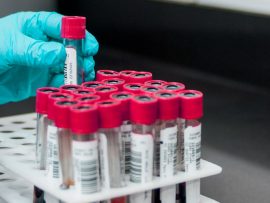Simulation-Based Education for Extracorporeal Membrane Oxygenation and Strategies for Implementation
Abstract Simulation-based education (SBE) in health care is expanding in both scope and relevance. As on-the-job training is challenging in extracorporeal membrane oxygenation (ECMO), SBE features strongly in its curricula,..
Read MoreAbstract Introduction: Pediatric extracorporeal membrane oxygenation (ECMO) management presents unique challenges in acute care settings, requiring specialized expertise to manage critically ill children. Medical and surgical fellows often manage these patients,..
Read MoreAbstract In the 70-plus years of clinically applied cardiopulmonary bypass, the training of that specialist operator, or perfusionist, has been through several stages. Perfusion was not a field that was..
Read MoreAbstract Background: Access to quality healthcare education across the world is disproportionate. This study explores the potential for Cardiovascular Perfusion education to be delivered online to reach international students. Methods:..
Read MoreAbstract Background: In the absence of uniform European regulations, there have been many differences in the training of perfusionists across Europe. Furthermore, there has been no uniform or single European accreditation..
Read MoreAbstract Introduction: There is a lack of information about cardiac surgery training and professional practice in Latin American (LATAM) countries. This study is the first comparative analysis of cardiac surgical..
Read MoreAbstract Background In 2020, the Extracorporeal Life Support Organization education task force identified seven extracorporeal membrane oxygenation (ECMO) educational domains that would benefit from international collaborative efforts. These included research..
Read MoreAbstract The utilization of simulators for training is increasing in the professions associated with cardiac surgery. Before applying these simulators to high-stakes assessment, the simulator's output data must be validated...
Read MoreAbstract Perfusion education programs use simulation to provide students with clinical skills prior to entering the operating room. To teach the psychomotor execution of skills in a simulation lab requires..
Read MoreAbstract Graduate medical education is predominantly based on a time-based apprenticeship model, with implied acquisition of proficiency after a pre-set amount of clinical exposure. While motion metrics have been used..
Read MoreAbstract When we first published our call for revisiting efforts to teach the skills of evidence-based healthcare (EBHC) back in November 2019, “COVID-19” was absent from society’s vocabulary. The aim of..
Read MoreAbstract come with risks and high costs, and should be utilized only when clinically indicated. Decisions to transfuse are however not always well informed, and lack of clinician knowledge and..
Read MoreAbstract Though historically the development of cardiovascular perfusion grew out of the need for cardiopulmonary bypass, the application of technologies of extracorporeal support has more recently expanded beyond the traditional..
Read MoreAbstract Background: Development of a high-fidelity cardiac surgery simulator (CSS) requires integration of a heart model with a mock cardiopulmonary bypass (CPB) circuit that can provide feedback to mimic the..
Read MoreAbstract Objective The single-crossclamp technique for coronary artery bypass grafting is recognized to reduce manipulation of the ascending aorta, and thereby improve neurological outcomes. However, there is a perceived disadvantage..
Read MoreAbstract The evolution and development of pediatric cardiac critical care as a distinct subspecialty have occurred rapidly over the past 20 years. As the field has grown, models for education,..
Read MoreAbstract Introduction/Aim: The patient’s condition and high-risk nature of extracorporeal membrane oxygenation (ECMO) therapy force clinical services to ensure clinicians are properly trained and always ready to deal effectively with..
Read MoreIntroduction To highlight and advance clinical effectiveness and evidence-based practice (EBP) agendas, the Institute of Medicine set a goal that by 2020, 90% of clinical decisions will be supported by..
Read More







